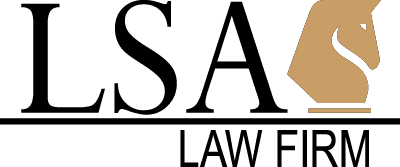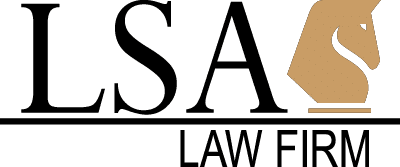Ever wondered why Armenia has become such a hotspot in the gambling world lately? Or why international operators are eyeing this small Caucasian country with increasing interest?
The Armenian gambling landscape has undergone significant transformation in recent years, and understanding the 2025 regulatory framework is crucial for operators and players alike. Let’s dive into what’s legal, what’s not, and how the online gambling space is regulated in Armenia today.
The Current State of Gambling in Armenia
Armenia has historically maintained a relatively liberal approach to gambling—a stark contrast to some of its neighboring countries where gambling activities face strict prohibitions. This approach has positioned Armenia as a regional gambling hub, attracting both operators and players from surrounding regions.
As of 2025, the gambling industry continues to be a significant contributor to Armenia’s economy—generating tax revenue, creating employment opportunities, and attracting foreign investment. The government has recognized this potential while simultaneously acknowledging the need for robust regulatory frameworks.
What’s Legal in Armenian Gambling (2025)

Land-Based Casinos
Armenia’s approach to land-based casinos remains permissive in 2025, with several high-end establishments operating primarily in the capital, Yerevan. These venues continue to attract both locals and tourists, particularly from countries where gambling is prohibited.
Key regulations include:
- Mandatory licensing from the Ministry of Finance
- Age restrictions (21+ for entry and participation)
- Location restrictions (casinos must operate in designated zones or within high-end hotels)
- Regular financial audits and compliance checks
Sports Betting
Sports betting remains one of the most popular gambling activities in Armenia. The 2025 regulatory framework maintains the legality of both retail and online sports betting operations, provided they obtain proper licensing.
The sports betting landscape includes:
- Licensed retail betting shops throughout major cities
- Online sportsbooks operated by both international and local companies
- Requirements for responsible gambling tools and self-exclusion options
- Restrictions on advertising during prime-time television and around educational institutions
Lottery and Gaming Machines
State-run lotteries continue to operate legally, with proceeds often directed toward social programs. Gaming machines are permitted in designated gaming halls and casinos, subject to technical certification and regular inspections.
Online Gambling Regulation in 2025
The online gambling sector has seen the most significant regulatory evolution in recent years. The 2025 framework builds upon earlier legislation while addressing emerging challenges in the digital space.
Licensing Requirements
Online gambling operators must obtain specific licenses that differ from land-based operations. The licensing process has become more stringent, requiring:
- Substantial license fees (with a tiered structure based on operation size)
- Proof of financial stability and corporate transparency
- Technical certification of platforms and games
- Detailed plans for player protection and responsible gambling
- Data protection and cybersecurity protocols
Taxation Structure
The taxation model for online gambling operations has been refined to balance revenue generation with market competitiveness:
- Gross Gaming Revenue (GGR) tax ranging from 15-20% depending on the gambling vertical
- Additional fees for license maintenance and regulatory compliance
- Tax incentives for operators establishing physical presence and creating local employment
Player Protection Measures
The 2025 regulatory framework places increased emphasis on player protection:
- Mandatory identity verification procedures
- Deposit, loss, and time limits that players can set
- Self-exclusion options across all licensed platforms
- Problem gambling detection systems
- Regular reporting of responsible gambling metrics to regulatory authorities
Cross-Border Operations and Geoblocking
Armenia’s approach to international gambling operations targeting Armenian players has tightened considerably. The 2025 framework includes:
- IP-blocking measures for unlicensed offshore operators
- Payment blocking for transactions to unlicensed gambling sites
- International cooperation agreements with other regulatory bodies
- Legal penalties for unlicensed operators actively targeting Armenian players
Technological Compliance
The technological aspects of compliance have become increasingly important in the 2025 regulatory landscape:
- Regular security audits and penetration testing
- Technical standards for Random Number Generators (RNGs)
- Data localization requirements for player information
- Anti-fraud and anti-money laundering systems
- Real-time monitoring capabilities for regulatory authorities
The Future Direction of Armenian Gambling Regulation

Looking beyond 2025, several trends are likely to shape the future of gambling regulation in Armenia:
- Integration of blockchain technology for transparent record-keeping
- Enhanced use of AI for detecting problem gambling behaviors
- Potential harmonization with EU gambling standards as part of broader economic cooperation
- Further specialization of licenses based on gambling verticals
- Increased focus on gambling advertising restrictions
Challenges and Opportunities
The current regulatory framework presents both challenges and opportunities for stakeholders in the Armenian gambling market:
Challenges:
- Adapting to increasingly stringent compliance requirements
- Managing the cost implications of enhanced responsible gambling tools
- Navigating the competitive landscape with international operators
- Addressing potential social concerns about gambling accessibility
Opportunities:
- A well-regulated market that provides consumer confidence
- Clear operational guidelines that reduce regulatory uncertainty
- Growing digital infrastructure supporting online operations
- Strategic geographic position as a regional gambling hub
Conclusion
The 2025 Armenian gambling regulatory framework represents a balanced approach—recognizing the economic benefits of a vibrant gambling industry while implementing measures to ensure player protection, market integrity, and social responsibility.
For operators looking to enter or expand in the Armenian market, understanding these regulations is not just about compliance—it’s about building sustainable business models that align with the country’s gambling policy direction. For players, the framework provides important protections while maintaining access to a diverse range of gambling options.
As the digital landscape continues to evolve, so too will Armenia’s approach to gambling regulation—likely maintaining its position as one of the more progressive regulatory environments in the region while continuously strengthening player protection measures.







